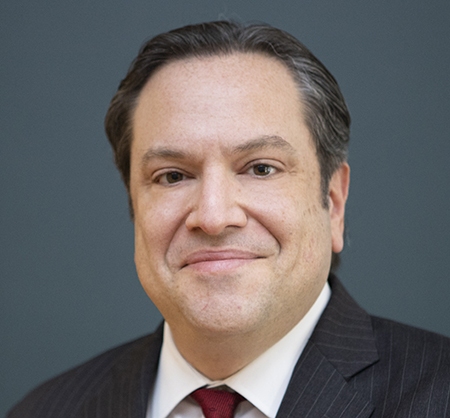
Reid Collins is nothing if not entrepreneurial and ambitious. Evidence the opening this week of its Delaware office with a one-two punch adding partner Jonathan Kass and of counsel Norm Monhait.
Founder Bill Reid and his partners have secured hundreds of millions of dollars in settlements and judgments for litigation trustees, companies, and individuals from the Delaware Court of Chancery over the years. So it’s no surprise they were interested in establishing a presence in the home of the nation’s best business court.
“I particularly enjoy practicing in Chancery, which I view as the most sophisticated, best prepared and most enjoyable court to appear before,” says Reid. He recently found the right fit to expand in Delaware in Kass, a veteran financial litigator and card-carrying member of the Delaware bar, and Monhait, a prominent plaintiff’s lawyer who retired from his own firm in 2019.
Reid met Monhait when he began litigating in Delaware in 2005. Monhait was a founder of Rosenthal Monhait & Goddess, a noted plaintiff’s firm that routinely served as Delaware counsel in high-end lawsuits in Chancery Court.
So, it was only logical when Reid, Lisa Tsai and Eric Madden filed a derivative lawsuit that they first tapped Monhait as Delaware counsel. The team brought a breach of fiduciary duty claim on behalf of Bruce Bakerman related to a misallocation of the $2.3B purchase price paid by Bacardi when it acquired the Grey Goose Vodka label. The sale included the assets of two companies – Sidney Frank Importing Co. and Grey Goose Bottling, LLC. And while Grey Goose Bottling held the recipe, manufacturing facilities in Cognac, France, and distribution rights in many emerging markets, more than 99.9 percent of the purchase price was improperly allocated to the Sidney Frank Importing Co. After winning a critical ruling from Chancellor William Chandler, Reid achieved a confidential settlement for Bakerman, Grey Goose’s longtime in-house lawyer.
That’s the type of success that brought Monhait to mind as Reid was planning the Delaware expansion. Reid gave Monhait a call at his winter home in Sarasota, Florida, with a crazy idea: How about leaving retirement to join Reid Collins?
Monhait was intrigued. “They are creative, hardworking lawyers, they have a good time at what they do,” he says. “I've always respected their work because they're thoughtful, they bring good cases, they analyze them well. They only bring cases that have substantial merit and they prosecute them very effectively. I've always had deep respect for that.”
For his part, Reid is thrilled. “You can’t find a bigger name than Norm Monhait for plaintiff’s work in Delaware,” he said. “He knows everyone and is a walking encyclopedia of Delaware law. Paired with Jonathan, we think we’ve got the ideal team for Reid Collins in Delaware.”
NASCAR, meanwhile – and fittingly - brought Kass and Reid together. (The firm annually hosts a lavish retreat for select clients at the Formula One race in Austin.) Specifically, the two worked on an appraisal rights case related to the stock-car racing giant’s acquisition of International Speedway Corporation in 2019.
“We pick our appraisal battles very carefully but found the ISCA case compelling,” says Reid, who founded the Texas-based litigation powerhouse in 2009 with longtime friends Jason Collins and Tsai. “Little did we know we would get such a bonus in meeting and getting to know Jonathan.”
The moves achieve Reid’s longtime goal of expanding into one of his favorite venues, and home to two-thirds of Fortune 500 companies.
Reid recalls taking an instant liking to Kass when the two met.
“We have a couple of mutual clients, one of whom recently said to me that Jonathan was thinking about opening his own shop. That caught my attention and led to a conversation,” Reid says.
“I knew he was able to think on his feet, that he was quite reasonable in the dealings that I had with him and that, most importantly, he was either foolish enough or brave enough to open his own office, which led me to believe that he might have the risk tolerance to join a bunch of folks like us,” he continues.
Reid Collins has built a top-flight reputation in record time thanks to eye-popping professional malpractice and business tort settlements, alongside powerful courtroom victories.
Among its successes was convincing Chancellor Andre Bouchard to take the rare step of ordering a company dissolved – freeing valuable anti-opioid technology created by Inspirion Delivery Sciences to aid in fighting the opioid crisis. Filed in September 2018, the case proceeded to trial in just three months. Monhait was on that case with the Reid Collins team, the last trial in which he participated before his planned retirement.
Inspirion and a growing docket of Delaware cases – including litigation representing dealmaker Sarah Bradley against her former colleagues at Kainos Capital, which settled for $20 million in 2020 – confirmed Reid’s impression that Chancery could be the next great frontier for Reid Collins.
Delaware provides an opportunity to offer a legal service tailored to both the needs of the state’s market and the firm’s broader strategy.

“When you think about standing in complex financial litigation, Delaware is a critical venue,” says Reid. “There are three types of claims – company claims, creditor claims and investor claims, each with its own set of issues. Most firms focus exclusively on one of the three claims. We bring all three types of claims, making Delaware an ideal forum for our entire practice.”
Reid says that the firm views the financial litigation world through this three-dimensional lens. In every matter, the firm sets out to evaluate and pursue claims as part of a cohesive plan to fully represent all constituents and maximize their recoveries.
“No other firm that I know of is adept in all three areas, but we are comfortable in all of them,” adds Reid. “And many of the disputes, including high-stakes breach of fiduciary duty cases, must be pursued in the Chancery Court of Delaware. With the addition of Norm and Jonathan, we enhance our capacity to handle all these claims there.”
Kass represents investors in appraisal, fiduciary duty and corporate governance litigation. “Now is a special time to be a Chancery Court practitioner focused on M&A related disputes,” says Kass, who regularly litigates valuation matters. “The Delaware courts have been at somewhat of a crossroads over the last five years,” he says. “The judiciary is keenly aware that corporate misconduct occurs but, at the same time, the courts have become skeptical of valuation methodologies other than those inextricably tied to the stock price. Obviously this creates a problem when corporate misconduct has made the stock price unreliable. As plaintiff-side practitioners, this is something we should embrace and take seriously, not fear and avoid.”
Like Monhait, Kass brings a wealth of experience before the Chancery Court. Though he started out representing corporations, hedge funds and foreign sovereigns in defense work at White & Case in New York, he transitioned to the plaintiff’s side in Delaware about a decade ago and never looked back. Kass finds the state particularly attractive because it offers guaranteed access to a sophisticated court, while also removing the wild card of jury trials. That’s yet one more reason the second-smallest state holds the registration for more than a million corporate charters.
“I love Delaware because it’s so sophisticated and so reliably prepared – and yet cordial. That’s why I’m not worried about what set of Chancellors and Vice Chancellors are there in five years,” Reid says in response to questions about Bouchard’s retirement. “If one of the court members is replaced, there’s going to be someone equally qualified, equally sophisticated, equally prepared, and yet approachable, who will fit into that court’s mindset.”
That certainty made opening a Delaware office with two attorneys who are not only well-versed in the Chancery Court but share the firm’s enthusiasm for financial litigation a strategic step, Reid says.
“We’re not about bodies,” he says. “We're about filling the substantive need on the team. I'd rather succeed by having more fun and being more selective on intake, as opposed to increasing the size of the firm and lowering our intake criteria – which would only create more misery because of size-induced overhead.”
Monhait, too, focused on the fun they have practicing together as an incentive. The impact of Covid – so much time, so few outlets for activity – may have made the opportunity particularly attractive, but it’s the quality of the Reid Collins team that proved aces. “It's been a pleasure working with them every time. The cases always got well worked, professionally and capably done, and we had a good time doing them,” says Monhait.
As for the firm’s Texas-New York ethos jibing with the culture of straitlaced, Windsor-knotted Delaware, Kass views that as a strength rather than a challenge.
“The most successful firms on the plaintiff’s side in Delaware are the ones that are willing to be as untethered to unproductive legal conventions as possible. The ones that move thoughtfully and deliberately and quickly,” he says. “Reid Collins’ lack of bureaucracy is a real asset. Every email, every conversation, every communication moves something forward. They are whip smart, creative and tireless people who love what they do. It’s a powerful, indeed dangerous, combination.”
In fact, when Kass inquired about the Texas-based firm before joining, he heard variations on the same theme over and over again: "Oh, Reid Collins, great firm. Funny story, I was once thinking of doing x or pursuing y. I did, but they were already there and I wondered how they got there."
That, Kass says, is exactly how to be successful in Delaware, and it’s a trait that will help the firm capitalize on the wave of litigation expected to arise from the coronavirus pandemic, which in addition to causing enormous human suffering has devastated wide swaths of the U.S. economy and driven unemployment to the highest levels since the Great Depression. Though the economic impact of Covid is still taking shape, it’s clear to Reid that enormous change is afoot and a deluge of financial litigation is imminent.
“We created this firm in 2009 because we accurately predicted that there was a ton of financial litigation coming,” says Reid, who also predicts that the pandemic will produce a similar groundswell of financial litigation. “When the economy turns south, a lot more frauds come to the surface, which we saw that in the last go-round. The outgoing tide shows you who's not wearing shorts.”

